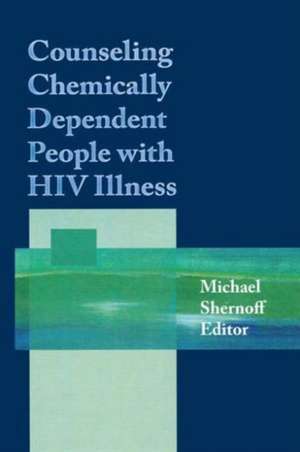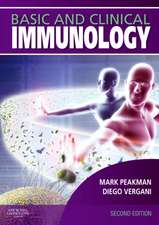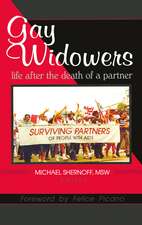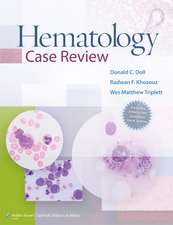Counseling Chemically Dependent People with HIV Illness
Autor Michael Shernoffen Limba Engleză Paperback – 23 mar 1992
By concentrating on practical instead of theoretical aspects of treatment, this groundbreaking book helps practitioners better understand problems in treatment and shows different ways treatment can be given. Authors discuss and describe methods they use such as group work, drug and AIDS education, treatment teams, and the harm reduction model. Chapters address work with specific patient populations with the dual diagnosis of HIV and chemical dependency and describe treatment in a variety of modalities, such as outpatient, residential, or hospital setting.
This timely book also includes helpful background material which introduces the complexities of work with this population through the story of one man’s struggle with AIDS and alcohol and drug addiction. Counseling Chemically Dependent People with HIV Illness also describes medical symptoms and problems of HIV-positive persons which gives non-medical counselors and therapists a preliminary understanding of what their patients may be undergoing physiologically. Other chapters focus on such topics as work with adolescents, short term group work in hospitals, HIV-infected persons on methadone maintenance, effective AIDS prevention with active drug users, and countertransference in professionals working with chemically dependent HIV clients.
One of few books to address specifics of counseling and therapy with this difficult population, Counseling Chemically Dependent People with HIV Illness is an extremely valuable and helpful guide for substance abuse counselors, certified alcoholism counselors, psychiatrists, psychologists, and social workers working in the chemical dependency field.
| Toate formatele și edițiile | Preț | Express |
|---|---|---|
| Paperback (1) | 250.01 lei 6-8 săpt. | |
| Taylor & Francis – 23 mar 1992 | 250.01 lei 6-8 săpt. | |
| Hardback (1) | 891.36 lei 6-8 săpt. | |
| Taylor & Francis – 24 mar 1992 | 891.36 lei 6-8 săpt. |
Preț: 250.01 lei
Preț vechi: 301.96 lei
-17% Nou
Puncte Express: 375
Preț estimativ în valută:
47.84€ • 50.12$ • 39.65£
47.84€ • 50.12$ • 39.65£
Carte tipărită la comandă
Livrare economică 08-22 aprilie
Preluare comenzi: 021 569.72.76
Specificații
ISBN-13: 9781560230168
ISBN-10: 1560230169
Pagini: 184
Dimensiuni: 156 x 234 x 15 mm
Greutate: 0.27 kg
Ediția:1
Editura: Taylor & Francis
Colecția Routledge
Locul publicării:Oxford, United Kingdom
ISBN-10: 1560230169
Pagini: 184
Dimensiuni: 156 x 234 x 15 mm
Greutate: 0.27 kg
Ediția:1
Editura: Taylor & Francis
Colecția Routledge
Locul publicării:Oxford, United Kingdom
Cuprins
ContentsIntroduction
- Being in Recovery and Having AIDS
- What Drug Treatment Professionals Need to Know About Medical Aspects of HIV Illness
- Counseling Chemically Dependent HIV Positive Adolescents
- Counseling Chemically Dependent HIV Infected Patients on an Inpatient Medical Unit
- Short-Term Group Work With Intravenous Drug Using People With AIDS in a Hospital Setting
- Persons With HIV On Methadone Maintenance
- Chemical Dependency and Relapse in Gay Men With HIV Infection: Issues and Treatment
- Care of HIV-Infected Native American Substance Abusers
- Counseling Incarcerated Individuals With HIV Disease and Chemical Dependency
- The Use of Outpatient Psychotherapy With Chemically Dependent HIV Infected Individuals
- Residential Treatment for Chemically Dependent Clients With HIV
- Effective AIDS Prevention With Active Drug Users: The Harm Reduction Model
- Countertransference in Professionals Working With Chemically Dependent Clients With HIV
- Reference Notes Included
Descriere
Counseling Chemically Dependent People with HIV Illness describes frontline clinical treatment of HIV-infected chemically dependent persons. It provides a realistic view of what the daily work with this population is like. Specific, in-depth case examples and material give readers a solid understanding of how to work more effectively with chemically dependent clients infected with HIV.
By concentrating on practical instead of theoretical aspects of treatment, this groundbreaking book helps practitioners better understand problems in treatment and shows different ways treatment can be given. Authors discuss and describe methods they use such as group work, drug and AIDS education, treatment teams, and the harm reduction model. Chapters address work with specific patient populations with the dual diagnosis of HIV and chemical dependency and describe treatment in a variety of modalities, such as outpatient, residential, or hospital setting.
By concentrating on practical instead of theoretical aspects of treatment, this groundbreaking book helps practitioners better understand problems in treatment and shows different ways treatment can be given. Authors discuss and describe methods they use such as group work, drug and AIDS education, treatment teams, and the harm reduction model. Chapters address work with specific patient populations with the dual diagnosis of HIV and chemical dependency and describe treatment in a variety of modalities, such as outpatient, residential, or hospital setting.











